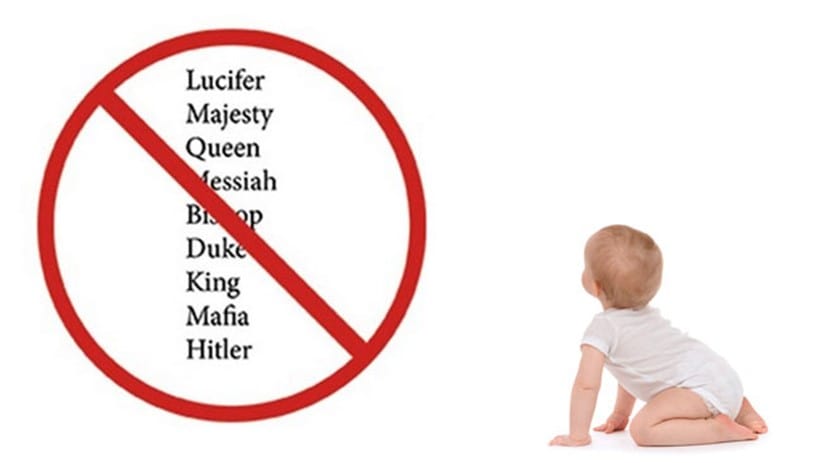A Guide to Understanding New Zealand’s Banned Baby Names
Welcome, wonderful parents and parents-to-be! Oh, the joys of expecting a little bundle of joy – the tiny socks, the cozy cuddles, and of course, the big decision of picking the perfect name. But wait, did you know that in the scenic lands of New Zealand, not just any name makes the cut? Yes, you heard that right!
New Zealand has a list of names that are, well, not exactly on the VIP list. Don’t fret though; your helpful guide is here to whisk you through the maze of naming no-nos with a smile. Get ready to up your baby-naming game and ensure your chosen name shines bright like the Southern Cross!
Why Are Some Names Banned in New Zealand?
So, you might be wondering, “Why on earth would a country ban certain names?” It’s all about loving guidance, truly! New Zealand wants to make sure that the names do not cause embarrassment or hardship to the little tykes. This means no names that resemble official titles, no names that are considered offensive, and no names that are just plain long-winded.
The Department of Internal Affairs is the guardian angel in this story, with the power to approve or reject names. They’re not here to squash your creativity but to ensure that each child has a name that they can wear with pride throughout their life without any unnecessary complications.
What Kind of Names Might be Rejected?
Here’s the scoop – the types of names likely to get the red stamp of disapproval from the Department of Internal Affairs include:
- Names that imply a child holds a certain title or rank, such as ‘King’, ‘Duke’, ‘Princess’, or ‘Justice’.
- Names that are more than 100 characters long – because, let’s be honest, that’s a bit of a mouthful!
- Names that include or resemble an official title or rank that could cause confusion, such as ‘Judge’ or ‘Royal’.
Now, before your creative juices take a hit, know that there are plenty of beautiful Maori and traditional names, as well as modern mixtures that are completely allowed. The key is to strike a balance between uniqueness and practicality. You want a name that stands out, sure, but you don’t want it to stand in the way of your child’s future.
Examples of Names That Got the Thumbs Down
Let’s get to the nitty-gritty, shall we? Below are some real examples of monikers that were given a ‘thanks, but no thanks’ in recent years:
- ‘Bishop’ – likely to confuse, no chess piece here!
- ‘Majesty’ – perhaps save it for the royal family.
- ‘Knight’ – a noble attempt, but alas, still not okay.
Remember, these are just a handful of the examples. The list is ever-changing, as unique names pop up each year. So do check the latest list from the authorities before you put that name down in ink.
How To Check If Your Chosen Name is Acceptable
Don’t get tangled up in worry! Here’s a simple way to ensure your chosen name is good to go:
- Visit the official website of New Zealand’s Department of Internal Affairs.
- Search for the most up-to-date list of banned names or contact them directly for personal queries.
- If in doubt, send in your name choice for pre-approval before your little one arrives.
Staying informed can save you from a last-minute name scramble after your baby’s birth. Taking these simple steps will help you to navigate the world of baby naming in New Zealand with ease and confidence.
Why the Name You Choose Is So Important
Choosing a name is a significant decision. It’s more than just a label; it’s a vital part of your child’s identity that will follow them from the playground to the boardroom. A name can shape first impressions and even influence how they see themselves. So, picking a name that’s both meaningful and acceptable within the rules is a gift that keeps on giving.
As you prepare for the big day, remember that the name you choose should be a reflection of your love and hope for your child’s future. And while you ponder the possibilities, you’ll be comforted to know that New Zealand’s guidelines are there to help you pick a name that’s as wonderful as your little kiwi will surely be.

“`html
Comprehensive Guide to Banned Baby Names in New Zealand for Parents
Things Parents Should Know in Preparing for Banned Names in New Zealand
Dear amazing parents, your journey to choosing the perfect name for your little one is sprinkled with excitement and imagination. But before you set your heart on a name, there are important things to consider, especially when it comes to naming regulations in New Zealand. Here are five key points to guide you:
1. Understanding the ‘Why’ Behind the Bans
Knowing the reasons behind the naming rules can help you appreciate New Zealand’s efforts to protect children from names that may be a burden. The regulations prevent any potential embarrassment, confusion, or difficulty that a child may face due to their name, setting them up for success without barriers linked to their personal identification.
2. Categories of Names Likely to Be Rejected
Familiarize yourself with the types of names that often face rejection. Anything that resembles a rank, title, official position, or is overly complex may not make the cut. Keep your choices clear of monikers like ‘Queen’, ‘Lord’, or excessively long and convoluted names that could complicate your child’s life.
3. The Approval Process & Updated Lists
Stay updated by regularly checking the official lists provided by New Zealand’s Department of Internal Affairs or proactively inquire about the acceptability of your desired name. This step can prevent future disappointments and ensure that the name you have your heart set on is indeed a viable option.
4. The Uniqueness vs. Practicality Balance
Though you might be inclined to go for a unique name, weigh it against its practicality. Remember, a unique name can stand out, but practicality ensures that it won’t stand in the way of your child’s future opportunities—it’s about hitting that sweet spot between individuality and long-term convenience.
5. The Significance of Name Choice
Beyond being a mere label, the name you bestow on your child is an integral part of their identity. It is often the first impression others have and can influence the child’s self-perception. In essence, the right name is a timeless gift that resonates with your aspirations for their journey through life.
Practical Steps to Ensure Your Baby’s Name is Approved
As you near the date to welcome your newest family member, take practical steps to ensure your selected name is given the green light:
- Regularly visit the Department of Internal Affairs’ website for the latest on permissible names.
- Contact the Department with your chosen name for confirmation, particularly if it’s unusual or might raise questions.
- Consider having a backup name just in case your first choice does not receive approval.
- Take advantage of the pre-approval name check service to avoid any last-minute hurdles.
- Engage with parenting forums or communities in New Zealand to share experiences and get advice on the naming process.
Remember, You’re Not Alone!
Naming a child is both a beautiful and weighty task. Thankfully, in New Zealand, you are supported with clear guidelines to help you make an informed and loving choice. The Department of Internal Affairs, along with community support and resources, are there to ensure your chosen name is just right for your wee one’s bright future.
“`
See more great Things to Do with Kids in New Zealand here. For more information see here
Disclaimer
The articles available via our website provide general information only and we strongly urge readers to exercise caution and conduct their own thorough research and fact-checking. The information presented should not be taken as absolute truth, and, to the maximum extent permitted by law, we will not be held liable for any inaccuracies or errors in the content. It is essential for individuals to independently verify and validate the information before making any decisions or taking any actions based on the articles.




